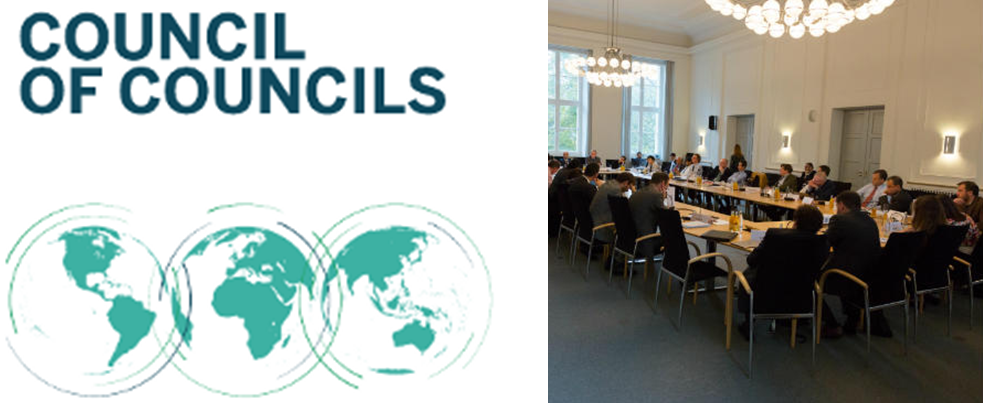European and Japanese Soft Power Signal Renewed Influence of G7

The G7 summit in Hiroshima showcased a new international order in the making: in a world where security is indivisible, the priority should be to uphold a collectively shaped rules-based order and find a modus vivendi with China. The G7 can work toward this by taking into account the diverse perspectives of industrialized countries and the Global South, which prioritizes multi-alignment and autonomy. Japan and Europe played a critical role in this process.
Japan’s diplomatic success was evident. Selecting Hiroshima as the venue for the summit was a powerful statement advocating for a world without nuclear weapons. It provided ample opportunities for symbolic gestures aimed at pressuring Russia and denouncing the use or potential use of nuclear weapons. Japan demonstrated its convening power by inviting influential leaders of the Global South, and representatives of regional organizations such as the Comorian President Azali Assoumani, current chair the African Union, and Cook Island Prime Minister Mark Brown, current chair of the Pacific Islands Summit. Japanese Prime Minister Fumio Kishida’s recent trips to Africa, India, and South Korea also reflect this inclusive approach. Simultaneously, as the sole G7 representative of Asia, Japan also managed to put China front and center in the discussions and in the final communiqué. Strong language emphasized Taiwan’s importance to international security and prosperity and urged China to refrain from “interference activities.” Despite the Japanese government’s preference for early event planning, they effectively handled the last-minute surprise visit by Ukrainian President Volodymyr Zelenskyy and successfully organized the Quad summit after President Biden’s travel plans changed. Finally, the security arrangements were robust, ensuring the safety of the attending leaders, especially noteworthy after the recent attacks on Japanese prime ministers.
Europeans contributed to shaping the international narrative on Ukraine. They facilitated contact between Zelenskyy—who traveled in a French government airplane—and Global South leaders still reluctant to condemn and sanction Russia. Europe’s balanced triptych approach to China, which acknowledges China as a partner, competitor, and systemic rival while advocating to de-risk rather than completely decouple, served as a guiding principle. Japan’s own three-pillar approach to China, encompassing conditional cooperation, counterweight, and deterrence, has many similarities with the European stance. Tokyo actively collaborated with European partners to influence Washington toward achieving convergence and adopting a less confrontational approach toward Beijing.
The inclusive nature of this G7 summit, its outreach to the Global South, and concerted efforts to address pressing global challenges highlighted the renewed significance and influence of this gathering.
>> Find the original article and the series of briefs on the Hiroshima G7 Summit on the Council on Foreign Relations website

Available in:
Regions and themes
Share
Related centers and programs
Discover our other research centers and programsFind out more
Discover all our analyses
China’s Strategy Toward Pacific Island countries: Countering Taiwan and Western Influence
Over the past decade, China has deployed a diplomatic strategy toward the Pacific Island Countries (PICs). This strategy pursues two main objectives: countering Taiwan's diplomatic influence in the region and countering the influence of liberal democracies in what Beijing refers to as the "Global South."

Opening up the G7 to South Korea to Address Contemporary Global Challenges
The G7’s global influence has diminished as powers like China reshape international governance through initiatives such as BRICS and the Shanghai Cooperation Organisation (SCO). With the G7 now representing just 10 per cent of the world’s population and 28 per cent of global GDP, its relevance is increasingly questioned.
Expanding SPDMM as a pivotal institution in the Pacific – A French perspective
The South Pacific Defence Ministers’ Meeting (SPDMM) is the only forum that brings together defense ministers from the wider South Pacific — including Chile, which is hosting it for the first time. This heterogeneous group of countries with varying resources, capacities, and interests — Australia, Chile, Fiji, France, New Zealand, Papua New Guinea (PNG), and Tonga — are united by their shared determination to strengthen cooperation on maritime security and humanitarian assistance and disaster relief (HADR) activities.
EU’s Derisking From China: A Daunting Task
With economic security as a major concern, the EU has recently turned to “derisking” from China. The EU strategy entails reducing critical dependencies and vulnerabilities, including in EU supply chains, and diversifying where necessary, while recognizing the importance and need to maintain open channels of communication.











